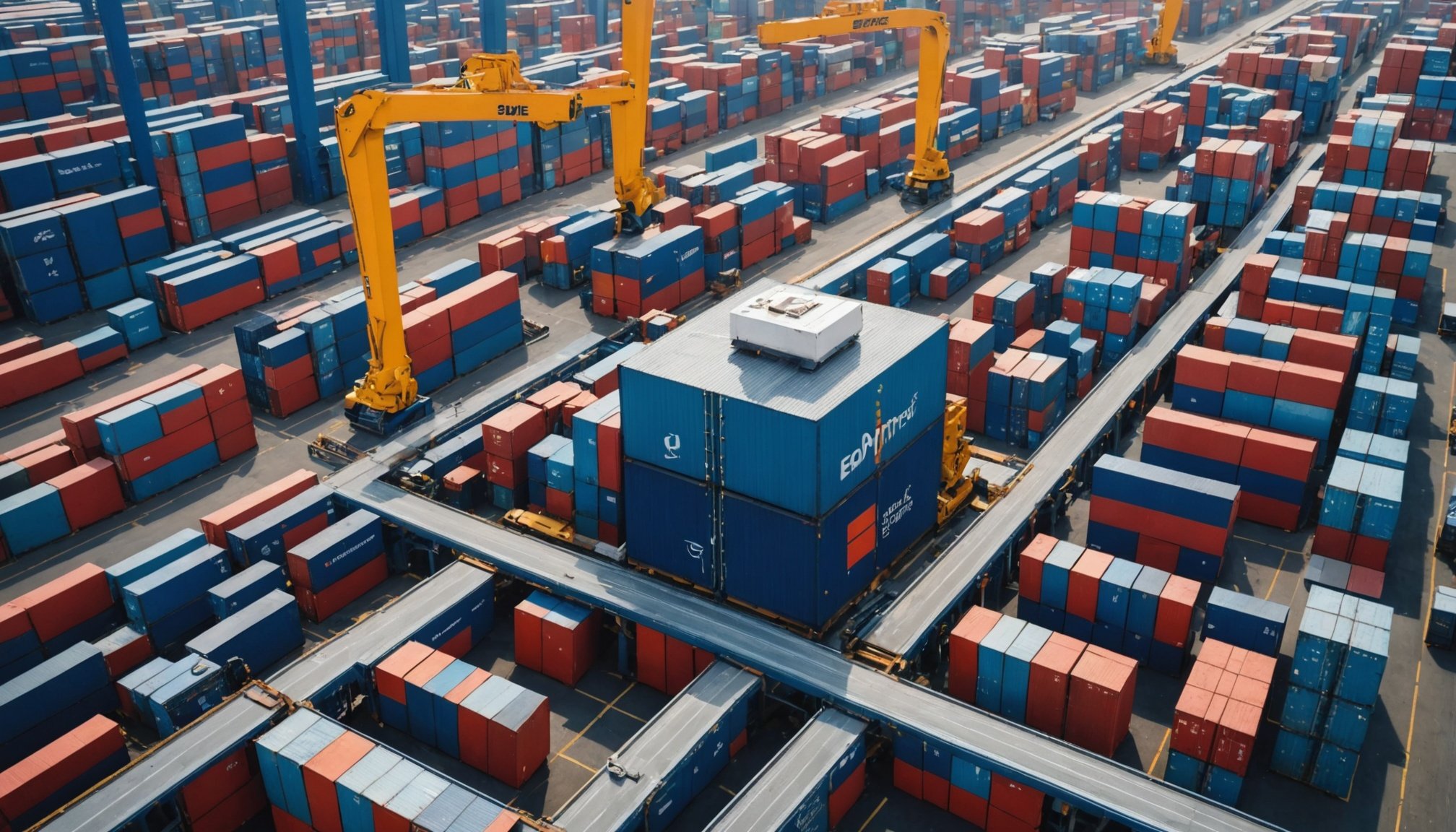Overview of AI in Supply Chain Management
The integration of AI in supply chain management has become a transformative trend, reshaping how businesses operate. AI, or Artificial Intelligence, refers to the ability of machines to perform tasks that require human-like intelligence such as decision-making and problem-solving. In the context of supply chain management, it enhances operations by providing intelligent data collection, analysis, and automation solutions.
The benefits of AI are significant, particularly for small and medium-sized enterprises (SMEs) that aim to boost their operational efficiency. By reducing manual interventions and increasing data accuracy, AI facilitates smoother operations and better decision-making, thus optimizing the flow of goods. For instance, AI can predict demand patterns, enabling companies to manage inventory effectively and avoid stockouts or overstocking.
In the same genre : Leveraging Influencer Analytics: Boost Your UK Marketing Campaign Success
In the UK, the adoption of supply chain technology employing AI is on the rise. Current trends indicate SMEs are increasingly investing in AI for forecasting demand, optimizing logistics, and enhancing customer service. This burgeoning adoption of AI showcases its potential to redesign supply chain management, making it more adaptive and resilient. As businesses continue to innovate, the use of AI is expected to further escalate, aiming for higher efficiency and more robust supply chains across various industries.
Innovative AI Strategies for SMEs
Exploring effective AI strategies for SMEs can significantly enhance supply chain management. One popular approach is employing optimization techniques; AI algorithms can analyse vast datasets to identify inefficiencies and suggest adjustments. This not only refines inventory management but also optimizes transportation routes, thus reducing operational costs.
Also to discover : Essential Tactics for UK FinTech Startups to Master Regulatory Compliance Excellence
Automation in supply chains is another transformative strategy. Automation facilitates tasks ranging from order processing to real-time tracking of goods. Imagine AI systems automatically updating inventory levels or forecasting demand based on sales patterns. This seamless integration of automation empowers SMEs to enhance productivity while reducing manual errors.
An example of an optimization technique through AI is predictive analytics. By anticipating future demands, businesses can adjust their supply chain operations to avoid overproduction or shortages. This predictive capacity ensures that resources are allocated efficiently, maintaining a delicate balance between supply and demand.
Moreover, AI-driven process automation liberates staff from repetitive tasks, allowing them to focus on higher-value activities. It’s crucial for SMEs to integrate these AI strategies into their operations, as they can bring about substantial improvements in efficiency, agility, and customer satisfaction within the supply chain framework.
Tools and Resources for AI Implementation
To ensure successful AI implementation in supply chains, SMEs need to arm themselves with suitable AI tools and resources. These tools not only aid in streamlining operations but are also pivotal in overcoming hurdles faced during AI integration.
AI tools for SMEs should be user-friendly and scalable, allowing for smooth adaptation within the existing frameworks. Many software solutions are designed for this purpose, offering features such as real-time analytics and decision-making assistance. Examples include platforms that enable demand forecasting and inventory optimization, crucial for maintaining efficient logistics.
For further learning and support, SMEs can access numerous resources. Online courses, workshops, and webinars provide valuable insights into AI best practices. Industry forums and AI-focused networking events foster a community of knowledge sharing and collaboration, assisting businesses to stay abreast of technological advancements.
Before diving into AI, SMEs should use a checklist to evaluate their readiness for AI integration. This includes assessing current infrastructure capabilities, technical skills within the workforce, and the financial viability of adopting AI solutions. Such preparation ensures that businesses can make informed choices, paving the path for a seamless technological transition.
Case Studies: Successful AI Implementation
AI implementation in UK SMEs has led to remarkable transformations, showcasing tangible success stories in the supply chain domain. These case studies illustrate both innovation and practical benefits achieved through strategic AI deployment.
One noteworthy example involves a UK-based SME specialising in retail logistics. They adopted AI technologies for inventory management, significantly reducing wasted stock and enhancing order accuracy. This not only improved efficiency but also resulted in substantial cost savings. A critical factor in their success was the implementation of predictive analytics, enabling the company to anticipate and respond to fluctuations in demand effectively.
Another AI success story comes from a regional food distributor that integrated AI-powered automation into its logistical operations. By optimizing delivery routes and employing real-time tracking systems, the company reduced delivery times and improved customer satisfaction.
From these SME case studies, several key lessons emerge. First, understanding the specific needs of the supply chain is crucial before implementing AI technologies. Second, ongoing training and support are paramount to ensure seamless integration. Lastly, sharing success strategies within industry forums can foster innovation across sectors. These examples highlight how AI, when strategically applied, can revolutionise supply chain operations for SMEs.
Future Trends in AI and Supply Chain Management
The future of AI in supply chains is shaped by rapidly evolving technological advancements. One emerging trend is the integration of AI with the Internet of Things (IoT), which promises to redefine the supply landscape. Intelligent systems can anticipate potential disruptions by utilizing real-time data from connected devices, thus enhancing decision-making capabilities. This synergy between AI and IoT optimizes resource allocation and minimizes delays in operations.
In the UK, predictive analytics is transforming how businesses forecast and plan. Advanced algorithms process historical data to create more accurate demand forecasts, allowing SMEs to refine inventory management and reduce waste. This approach not only enhances operational efficiency but also ensures businesses can respond swiftly to market changes.
Furthermore, exploration into machine learning technologies is expanding. Adaptable algorithms learn from varied datasets, continuously improving precision in logistics and customer service. This ongoing improvement is vital for SMEs to remain competitive and agile.
Finally, as AI becomes more sophisticated, ethical considerations and data privacy will play crucial roles in shaping its adoption. Ensuring transparent operations and maintaining consumer trust are pivotal for the sustained growth of AI in supply chain management. The future of AI promises transformative impacts on SME efficiency, fostering more resilient supply chains.
Overcoming Challenges in AI Adoption
Implementing AI in supply chains is promising but not without its hurdles. SMEs often face unique challenges of AI integration, such as limited budgets, insufficient technical expertise, and resistance to change. These barriers can be daunting but are not insurmountable.
One common barrier to implementation is the high initial cost of AI technology. Although upfront expenses can be significant, the long-term benefits such as enhanced efficiency and cost savings justify these investments. Financial planning and phased implementations can help SMEs manage costs effectively.
Another challenge is the technical knowledge gap; SMEs might lack the expertise needed for smooth AI deployment. Solutions include investing in staff training and seeking partnerships with AI specialists. Bridging this gap empowers businesses with the skills necessary for successful integration.
Change management plays a crucial role in overcoming these barriers. Ensuring employees are onboard and aligning AI goals with business objectives foster a smoother transition. Regular workshops and open communication contribute to a culture embracing AI.
By acknowledging these challenges and implementing strategic solutions, SMEs can harness the transformative power of AI. A proactive approach not only addresses the barriers but also maximises potential gains, helping SMEs thrive in a competitive market.











